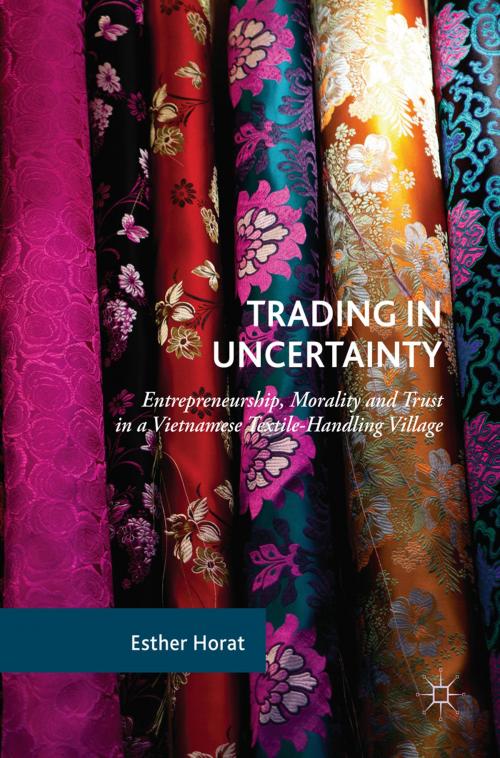Trading in Uncertainty
Entrepreneurship, Morality and Trust in a Vietnamese Textile-Handling Village
Business & Finance, Economics, Economic History| Author: | Esther Horat | ISBN: | 9783319556482 |
| Publisher: | Springer International Publishing | Publication: | July 4, 2017 |
| Imprint: | Palgrave Macmillan | Language: | English |
| Author: | Esther Horat |
| ISBN: | 9783319556482 |
| Publisher: | Springer International Publishing |
| Publication: | July 4, 2017 |
| Imprint: | Palgrave Macmillan |
| Language: | English |
This book is an ethnographic case study, based on first hand observation, of family businesses in the northern Vietnamese village of Ninh Hiệp along the Red River Delta, which became a major hub for textiles in the wake of the country’s shift towards market socialism. The author explores how the traders experience, negotiate and react to a marketization process that is markedly shaped by the state’s morally ambivalent governance, and which can be thus characterised as an admixture of socialist and neoliberal ideologies.
How are traders shaping the political economy of Vietnam? How has the labour force changed as textile-handling has become an increasingly profitable undertaking? Horat explores the relationships between traders and local authorities, as well as changing ideas of masculinity and femininity. Focusing on the redevelopment of the market landscape and the increasing share of private ownership that have given rise to great uncertainty, this book provides a we
ll-timed inquiry into current debates of economic development in a uniquely shaped market environment.
This book is an ethnographic case study, based on first hand observation, of family businesses in the northern Vietnamese village of Ninh Hiệp along the Red River Delta, which became a major hub for textiles in the wake of the country’s shift towards market socialism. The author explores how the traders experience, negotiate and react to a marketization process that is markedly shaped by the state’s morally ambivalent governance, and which can be thus characterised as an admixture of socialist and neoliberal ideologies.
How are traders shaping the political economy of Vietnam? How has the labour force changed as textile-handling has become an increasingly profitable undertaking? Horat explores the relationships between traders and local authorities, as well as changing ideas of masculinity and femininity. Focusing on the redevelopment of the market landscape and the increasing share of private ownership that have given rise to great uncertainty, this book provides a we
ll-timed inquiry into current debates of economic development in a uniquely shaped market environment.















